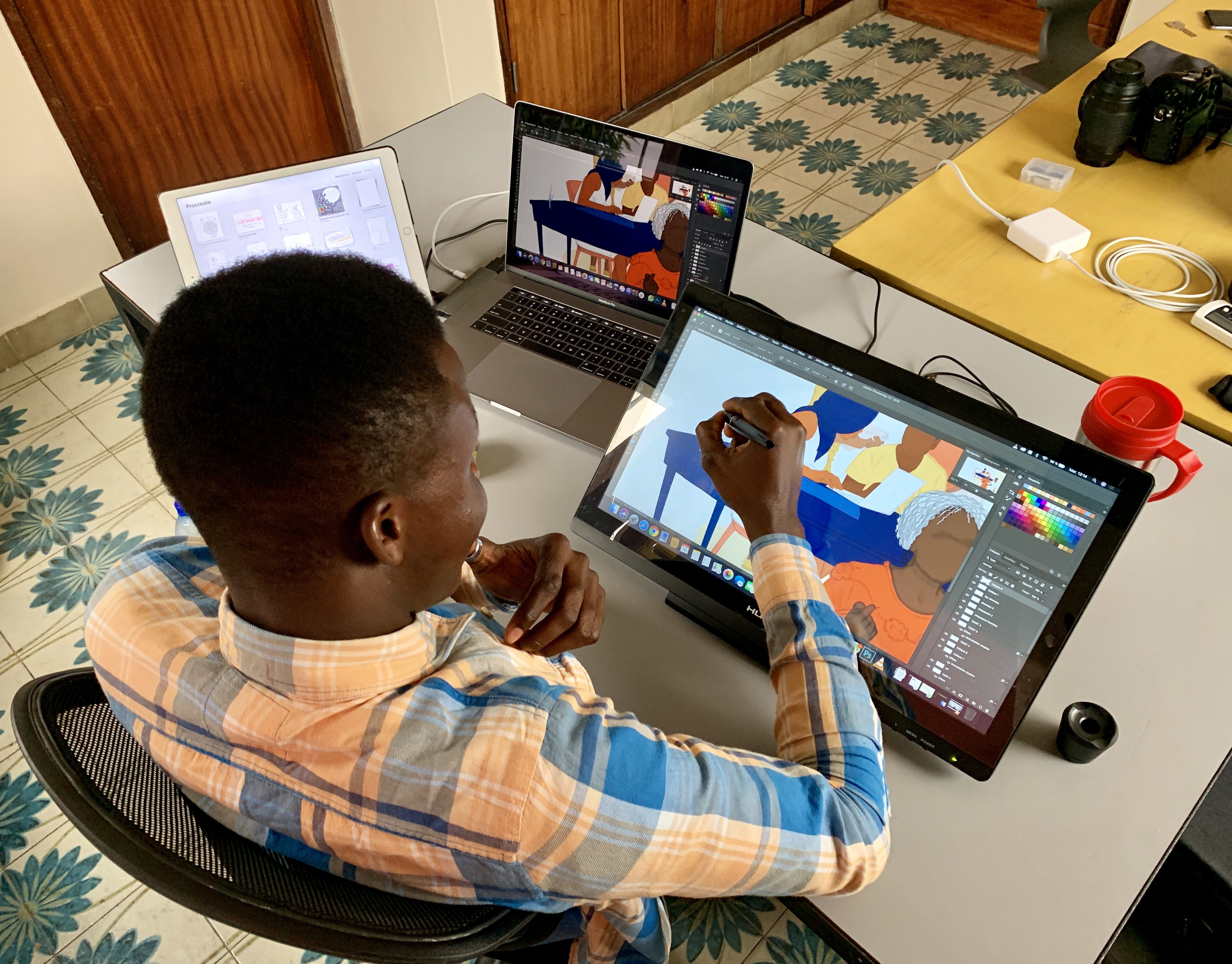A significant outcome of the global digital transition is those broadly accepted paradigms and implicit theories about how the world works are being antiquated faster than ever. A case in point is the African creator economy which has been instrumental in unveiling a new social impetus and erasing established socio-economic imperatives that have been holding us back as a continent. This article will highlight the outdated modes and potential replacements.
A simple definition of the creator economy is an economy where independent creators leverage the full force of the internet to earn a living while also fulfilling the need to express themselves.
The creator economy is principally centered around the process of creating, sharing, and circulating intellectual capital. Service-centered professions such as food delivery and taxi-hailing apps are not part of the creator economy. They are part of an adjacent model known as the gig economy. Examples of professions in the creator economy are podcasters, vloggers, online course creators, virtual tutors, virtual professional coaches, newsletter writers, digital artists, etc.
The first thing the African creator economy challenges are the pervasive belief that an individual can either do what they love or go for a ‘practical career’. There is usually added emphasis on “making a living” instead of living. All of these change with the creator economy. In this new model, workers earn a living doing what they love and choose how they organize their time.
The second thing the African creator economy is working to upend is the vice-like grip that middlemen, rent-seekers, and parasites have on our lives. Value chains are now evolving to only accommodate the producer and the consumer.
All other entities that have traditionally profited without adding any value are being eliminated. A perfect illustration of this evolution is the slow death of the attention economy.
According to Forbes, the Attention Economy is the ad-based revenue model that has dominated creative industries in the twenty-first century and made the incumbent social platforms some of the most valuable tech companies in the world. We do not pay to use Facebook, Twitter, or YouTube because we are the products. The primary consumers are advertisers to whom our attention and personal data are sold off.
A growing number of business-savvy creators have noticed this dynamic and decided to regain their power.
This new independent creative class is tired of creating value for platform owners for free. They are now migrating to platforms where they can directly earn from their audiences.
A good example is Podia, the online course and digital product platform. Through the platform, creators can earn money directly from their audiences instead of posting tutorials on YouTube only to receive meager payouts.
[perfectpullquote align=”right” bordertop=”false” cite=”” link=”” color=”” class=”” size=””]It is safe to surmise that the African creator economy offers modern workers three things: freedom, ownership, and stability.[/perfectpullquote]
The effect has forced traditional platforms to begin prioritizing creators’ needs instead of treating them as afterthoughts. YouTube has, for example, added virtual tip jars on its platform where top creators can now receive money directly from their audience.
Third, the African creator economy is challenging the traditional belief that the only way for workers to achieve upward financial mobility is by quitting their jobs and taking on an inordinate amount of risk via traditional entrepreneurship. It is an increasingly important conversation given the current global economic downturn due to COVID-19.
Africans with traditional office jobs are now forced to come to terms with the fact that their salaries are likely to remain the same as prices of basic commodities continue to hit the roof. In a healthy, functional society, the rigidity of employee wages in the face of rising inflation would be a matter of great discontent. But when the layoffs begin, the song will be “be glad you still have your job.”
With such a predicament, finding alternative ways to gain upward financial mobility becomes a matter of necessity.
To solve this quandary, the African creator economy promises to give creators a revenue model with asymmetric returns with low risk. It is leveraging the power of loyal online communities.
Through constant engagement, creators are able to engender feelings of camaraderie and trust in their audiences. This in turn translates into steadier cashflows and asymmetric returns as there is no ceiling on how much audiences are willing to pay for the value they are receiving.
It is safe to surmise that the African creator economy offers modern workers three things: freedom, ownership, and stability.
Mwotia Ciugu is a public relations and communication strategist based in Nairobi.
Photo by Medsile via Iwaria.

